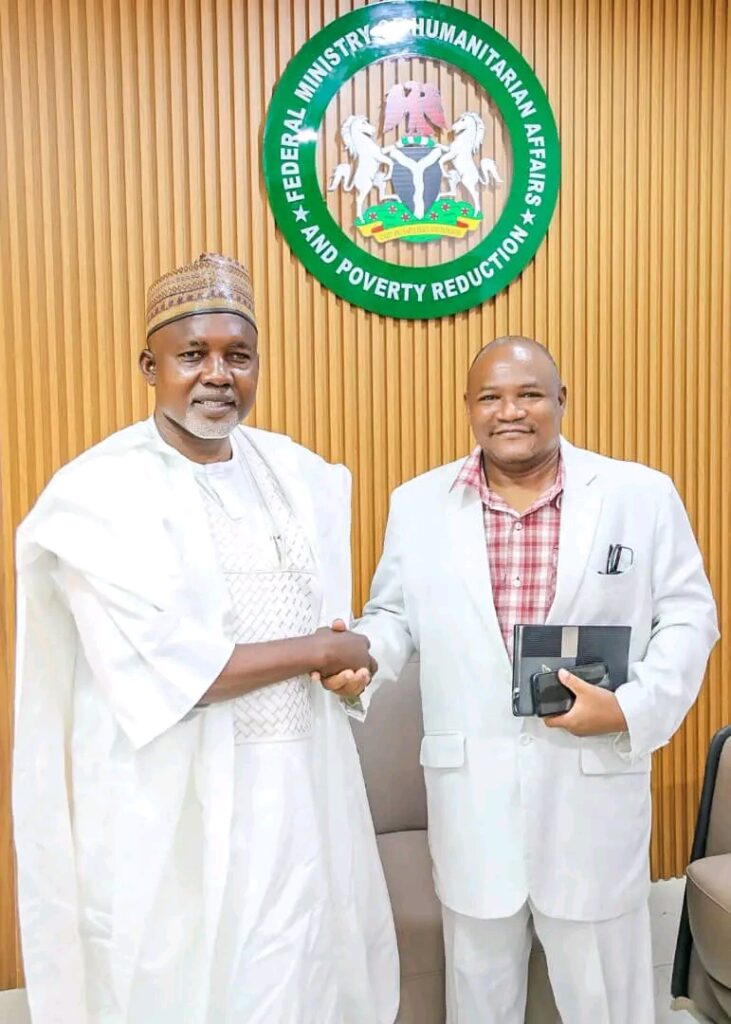Emir Of Shonga And Dr Magashi Seek Collaboration with Humanitarian Minster to Tackle Health Sector Crises
In a bid to address persistent challenges within Nigeria’s health sector, a high-level delegation led by the Emir of Shonga, His Highness Dr. Halliru Ndanusa Yahaya, today paid an advocacy visit to the Honourable Minister of State for Humanitarian Affairs and Poverty Reduction, Dr. Yusuf Tanko Sununu.
The delegation, which included prominent health sector figures Dr. Aminu Magashi Garba, Chief Executive Officer of the Africa Health Budget Network, and Dr. Ejike Oji, Chairman of the Association for Advancing Family Planning, engaged the Minister in crucial discussions aimed at fostering solutions.
Kano COP on immunization visits PHCMB DG, advocates for better funding, accountability
According to a statement released by the Office of the HMSHAPR, the visit to envisioned and promote much-needed industrial harmony a reference to ongoing disputes and strikes within the sector – and significantly enhance the quality of healthcar delivered to Nigerians nationwide.
Beyond internal sectoral issues, the meeting explored vital avenues for strengthening collaboration between the health sector and the Federal Ministry of Humanitarian Affairs and Poverty Reduction.
A key objective identified was ensuring equitable access to emergency health services for vulnerable populations caught in humanitarian crises across the country.
This highlights the critical intersection of health emergencies and displacement or disaster situations.
The visiting dignitaries also seized the opportunity to formally congratulate Dr. Sununu on a significant recent achievement .
securing the approval of the Federal Executive Council (FEC) for the establishment of the National Council on Humanitarian Affairs. This new council is expected to provide a more coordinated national response to humanitarian challenges.
While specific action plans were not detailed in the release, the advocacy visit signals a concerted effort by key health sector stakeholders to engage directly with the Federal Government.
The proposed advisory role and emphasis on collaboration suggest a potential shift towards more inclusive dialogue and partnership in tackling the deep-rooted crises affecting Nigeria’s healthcare system and its ability to serve citizens, especially those in dire humanitarian need.


